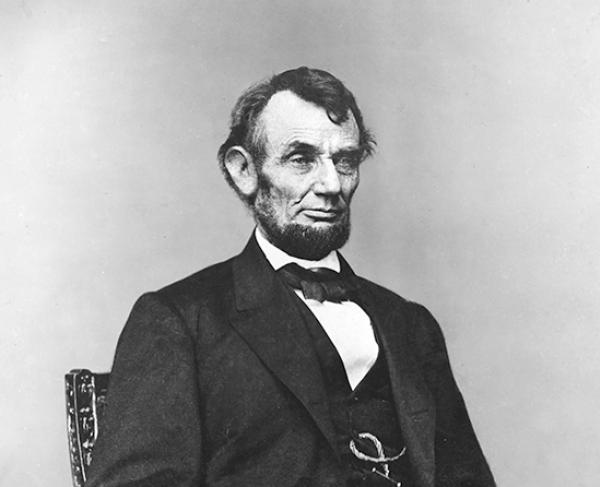Your cart is currently empty!
“No”
Last Friday (3/28/2025), Vice-President J.D. Vance and his wife Usha travelled to Pituffik Space Base (formerly Thule AFB) in northern Greenland as part of a truncated tour to the Danish territory that had initially included a day in the capital city of Nuuk and cultural episodes. This was initially billed as a friendly visit to highlight positive American interest (generated by the Trump administration) in “gaining control” of Greenland, but due to a spectacularly flat degree of interest in the VP’s presence, the entire actual “talking-to-Greenlanders” part of his trip was cut. Instead, the Vances spent three entire hours visiting the US base and giving an awkward press conference before flying home to D.C. As an aside, there’s nothing like forcing service members to stand at attention as living backdrops to a partisan political agenda, but elections have consequences.
While there, though, he managed to spectacularly miss the entire point of America. Specifically, his quip in the linked video (8:15-8:50). When pressed about why America needs to gain control of Greenland, he remarks that “Well, the President said we have to have Greenland and I think that we do have to be more serious about the security of Greenland. We can’t just ignore this place. We can’t just ignore the President’s desires. /snip
I’m not going to discuss the Tom-Clancy-brand-ghostwriter- sillypants assertion that Denmark is somehow neglecting Greenland to the extent that a secret Communist armada of Spetsnaz commandos and North Korean armored divisions are hiding under a glacier in a corner of northeastern Greenland to attack America by Chinese naval speedboat; nor am I dismissing legitimate long-term security concerns that are ably addressed by NATO, by the 1951 Defense of Greenland treaty or as a matter of due course by simple daily operations. Instead, I’m going to discuss something far more important than how much blathering JD Vance can do about the perceived inadequacies of the Sirius sled dog patrol or NATO funding levels. I’m discussing what actually makes America great.
Let’s parse this moment. “We can’t just ignore the President’s desires.”
Taken literally and seriously, which is how I’m sure that J.D. Vance wants to be seen, he is stating that the wishes of the President of the United States are mandates, calls to action, and that compliance with those wishes is the duty of every American, the agenda of the government, and override all other concerns. The President says it, so it must be done.
That is explicitly and literally the opposite of America’s founding ethos. Our entire rebellion against the British Empire was fueled by outrage over attempts to enforce compliance with the desires of some guy who called himself King George the Third, acting in his role as the hereditary monarch of the British Empire ruling over his subjects. It would be fair to say that the whole point of the American Revolution and the creation of the Constitution was to avoid a political system where the whims of any one person would dictate official policy.

James Madison summed up the ideal function of the United States government in Federalist No. 39: “a government which derives all its powers directly or indirectly from the great body of the people, and is administered by persons holding their offices during pleasure, for a limited period, or during good behavior.” Nothing about executive whims in that one. Nor did the Founders who hammered out the Constitution hold monarchy or a desire-driven government in high esteem- this contemporaneous report (brought to us courtesy of the University of Houston’s digital history project) is pretty clear: On August 18, 1787, a Pennsylvania newspaper carried a leaked report from the Constitutional Convention. It was the first word on the proceedings that directly quoted a delegate. “We are well informed” of “reports idly circulating, that it is intended to establish a monarchical government…. Tho’ we cannot, affirmatively, tell you what we are doing, we can, negatively, tell you what we are not doing–we never once thought of a king.” Seems that anonymous report was pretty accurate for a very long time; we haven’t had a single king or emperor. Thomas Paine, the famed author of Common Sense (1776), famously stated that “For as in absolute governments the King is law, so in free countries the law ought to be king; and there ought to be no other.” Seems like a theme here…

George Washington himself was not a fan of monarchy. When one of his officers suggested that he become the “King of America”, Washington was deeply troubled by the suggestion and responded with strong disapproval, stating that the idea of a monarchy in America was “big with the greatest mischiefs that can befall my Country”. I think it’s fair to say that the guy who led the Continental Army, risked his life as the leader of the armed rebellion against the Crown, and who would go on to lead the nation as our first President after helping to draft the Constitution, had some insight as to how America was supposed to work.
Fourscore and seven years later, another American President was famous for roundly dismissing monarchy as an acceptable answer for America. From the famed 1858 Lincoln-Douglas debate:
“That is the real issue. That is the issue that will continue in this country when these poor tongues of Judge Douglas and myself shall be silent. It is the eternal struggle between these two principles — right and wrong — throughout the world. They are the two principles that have stood face to face from the beginning of time, and will ever continue to struggle. The one is the common right of humanity and the other the divine right of kings. It is the same principle in whatever shape it develops itself. It is the same spirit that says, ‘You work and toil and earn bread, and I’ll eat it.’ No matter in what shape it comes, whether from the mouth of a king who seeks to bestride the people of his own nation and live by the fruit of their labor, or from one race of men as an apology for enslaving another race, it is the same tyrannical principle.“

–February 11, 1861 Reply to Governor Morton
It’s literally a rebuke of the Trump/Vance theorem of “we can’t ignore the President’s wishes.” It’s also one of the guiding pillars behind the greatest calamity to befall our country in our history. Lincoln rode the limits of Presidential authority, sometimes to excess. He did it during a time of unprecedented challenge to government authority and against a literal armed, secessionist rebellion predicated on the assumption that he would install his wishes upon the population. Even in a time when he enjoyed unprecedented powers over the population as an extension of the war powers of the executive, he resisted the wholesale implementation of his whims as laws, instead pressuring Congress and the states to legislate the changes he wanted to see.
Teddy Roosevelt, two generations later, had some pretty strong words about executive wishmaking:


Bluntly put, one of the core pillars of America is the power to say “no”. No to a police officer. No to a mayor or a census worker or a doctor or a paramedic or a teacher or a soldier or a Government agent. No to a politican. “No”, even to the President of the United States. Not always in any circumstance or without real-world consequence, granted, but foundationally, our entire nation is predicated on the ability to literally ignore the whims of our fellow citizens and our leaders. If they really want compel compliance, they can go through the effort of drafting a bill, getting it through the legislature, signed by the executive and even then there’s still judicial review. If the President of the United States desires me to do something, I am entirely within my rights as a private citizen to literally tell him to receive fellatio from his Vice President and pet Senator(s) and ignore him (I didn’t put in a photo of Lindsey Graham because the soft, weak chin is unnerving).

One of the greatest terrors of the Hussein regime in Iraq was that it was effectively lawless when it came to the whims of Saddam, his family and his policymakers in the Ba’ath Party. Torture, rape, imprisonment, executions and ‘disappearances’, theft, extortion– the real-world results of unfettered executive wish fulfillment weren’t territorial blobs on a map or societal harmony. They were despair, fear, war, death and destruction on a scale that affected every single Iraqi then and now. Nominally a democracy with an elected head; Iraq was an autocracy in every functional way, with government directly by Saddam and indirectly through those he selected to govern. Iraq was a place where a young woman could be kidnapped and raped (sometimes to death) for the amusement of the leader’s son and it was totally legal because of executive wish fulfillment. One of the bright spots of the Iraq War is that we and the Iraqi people have collaboratively removed that arbitrary threat, albeit imperfectly.
Here in the United States, we don’t have a perfect government either, but we really, really do not want to live in a society where the whims of an executive, no matter how well-intentioned they may seem, dictate what we are doing as a nation. If the President wants something, they need to find an amicable legislator, write and pass a bill, sign it into law and defend it through the process of judicial review if needed. That is how our nation is designed to work. Not the arbitrary wishes of a tyrant, no matter their identity.
When it comes to understanding America, J.D. Vance gets a big, juicy fail. But that’s easy to understand- the man lacks a spine, a sense of honor and a moral compass. But we don’t.

And it is our responsibility as Americans, all of us, to tell people like J.D. Vance and Donald J. Trump exactly what they need to hear.
NO.
by
Tags:
Leave a Reply
You must be logged in to post a comment.